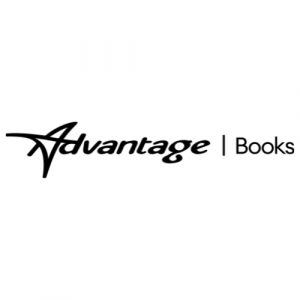New Book, ‘Unvendor,’ Calls on Healthcare Organizations to Rethink IT
By branching away from such single-vendor IT systems, Scherpbier writes, healthcare facilities will be able to better keep up with changes in reimbursement, care processes, patient expectations, and technology trends.
”It is time that we question the single-vendor mentality and diversify our health IT environments, reduce our dependence on a single IT megavendor, and bring other information technologies, from other firms, into the organization,” Scherpbier writes.
In Unvendor, published by Advantage Books and now available, Scherpbier explains the history behind how most U.S. health systems and healthcare provider organizations have come to rely on IT from a single large vendor. There are three megavendors that handle such areas as electronic health records, patient accounting, general ledgers, lab results, radiology and pharmacy reports, as well as decision support and analytics.
Scherpbier has worked on, as he puts it, “both sides of the health IT fence.” He was a physician advisor for large health IT vendors and chief medical information officer at a five-hospital health system.
He says his book should not be seen as a diatribe against large health IT vendors, and he acknowledges the single-vendor approach has benefits, including fewer contracts to manage, fewer IT vendors to work with, and fewer interfaces and connections between systems. But there are also downsides, such as high costs, innovation delay, and forced workflow uniformity when groups of employees within hospitals and health systems have a variety of needs.
Making the change to a multi-vendor system, Scherpbier writes, will create a more agile and responsive IT environment.
Scherpbier’s book is aimed at leaders and executives in healthcare organizations, including CEOs, CFOs, chief information officers, chief medical information officers, chief nursing information officers, and others. Leaders of small and midsize health IT firms also will benefit from the book.
“I hope my call to unvendor,” Scherpbier writes, “will also result in more opportunities for innovative companies and a thriving health IT industry.”
About Harm Scherpbier, M.D.
Dr. Harm Scherpbier, author of Unvendor: Innovate Healthcare With a Diverse IT Stack, is a health IT strategy advisor who partners with firms on clinical system development, population health solutions, data analytics, and health IT implementation and strategy. He is the chief medical information officer at HealthShare Exchange, the Philadelphia regional Health Information Exchange. Scherpbier was born and raised in the Netherlands, where he completed his medical training at the University of Groningen. During his medical training, he became fascinated by computers and information systems, and pursued a master’s degree in medical informatics from the Erasmus University Rotterdam.
About Advantage Books
Advantage Books is an imprint of the publishing arm of Advantage––The Authority Company. For two decades, Advantage Books has helped CEOs, business leaders, entrepreneurs, and other professionals share their expertise and build their Authority by writing a book. Over the years, Advantage has given these authors an alternative to traditional nonfiction publishing. Advantage authors are leaders who have credentials and expertise to share, combined with a strong reputation in their industry. Advantage Books provides these authors with a team of experts to assist in such areas as book concept and developmental writing, editorial and design, printing and distribution, and promotions.
Lauren McCarthy
Advantage Media
+1 843-414-5600
email us here
Legal Disclaimer:
EIN Presswire provides this news content "as is" without warranty of any kind. We do not accept any responsibility or liability for the accuracy, content, images, videos, licenses, completeness, legality, or reliability of the information contained in this article. If you have any complaints or copyright issues related to this article, kindly contact the author above.
Bounce Rite Back Expands Bounce House Rentals In Davie, FL
Breaking Nomi Health Data Shows Diabetes Is No Longer the Top Driver of Rising U.S. Healthcare Costs
Leadership Expert William B. Gilmore Announces the Release of Leadership: The Path to Success
Kalendarium
Więcej ważnych informacji
 Jedynka Newserii
Jedynka Newserii

 Jedynka Newserii
Jedynka Newserii

Ochrona środowiska

Z powodu braku przejrzystego prawa branża recyklingu odkłada inwestycje. Firmy apelują o szybkie wdrożenie przepisów
Branża recyklingu stoi przed wyzwaniami związanymi z wdrożeniem systemu kaucyjnego, systemu rozszerzonej odpowiedzialności producenta i rozporządzenia PPWR. Brakuje jednak odpowiednich przepisów dostosowujących polskie prawo i realia do unijnych regulacji. W efekcie utrzymującej się niepewności prawnej między 2018 a 2023 rokiem co trzeci zakład recyklingu zamknął działalność. Wiele firm odkłada inwestycje, czekając na uregulowanie rynku. Podobna niepewność dotyczy też producentów opakowań.
Transport
Testowanie pojazdów zautomatyzowanych wkrótce będzie możliwe. To odpowiedź na postulaty przedsiębiorców

Kończą się prace nad przepisami, które mają usprawnić prace badawcze nad pojazdami zautomatyzowanymi. Ma to być odpowiedź na postulaty przedsiębiorców, którzy wskazywali na potrzebę pilnej zmiany przepisów w zakresie testowania pojazdów autonomicznych. Obecne regulacje nie sprzyjają postępowi technologicznemu i rozwoju autonomiczności pojazdów, o czym świadczy bardzo niewielka liczba wydanych uprawnień do ich prowadzenia.
Firma
Przedsiębiorcom coraz bardziej doskwiera niestabilność i skomplikowanie przepisów podatkowych. Problemem są też niejasne ich interpretacje

Polscy przedsiębiorcy często negatywnie oceniają jakość przepisów podatkowych – wynika z raportu „Przedsiębiorcy pod lupą fiskusa 2025” przygotowanego przez firmę doradztwa podatkowego MDDP we współpracy z Konfederacją Lewiatan. Ich niepokój budzą niejednolite interpretacje przepisów i niepewność prawa podatkowego, które cały czas jest modyfikowane. Wśród kluczowych zmian w obszarze podatków, które będą dotyczyć praktycznie wszystkich przedsiębiorców, są m.in. wprowadzenie Krajowego Systemu e-Faktur czy zmiany w podatku od nieruchomości.
Partner serwisu
Szkolenia

Akademia Newserii
Akademia Newserii to projekt, w ramach którego najlepsi polscy dziennikarze biznesowi, giełdowi oraz lifestylowi, a także szkoleniowcy z wieloletnim doświadczeniem dzielą się swoją wiedzą nt. pracy z mediami.











.gif)

 |
| |
| |
|